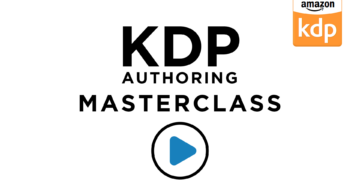When someone asks you for a favor, you usually:
Say yes without hesitation, even if it inconveniences you or goes against your wishes.
Say yes reluctantly, but hope that they will appreciate you or return the favor someday.
Say maybe, but try to find a way to get out of it or delay it as much as possible.
Say no politely, but explain your reasons or offer an alternative solution.
Say no firmly, without giving any reasons or feeling any guilt.
When someone gives you a compliment, you usually:
Reject it or downplay it, and feel embarrassed or unworthy.
Accept it but doubt it, and feel insecure or suspicious.
Accept it but forget it, and feel indifferent or bored.
Accept it and appreciate it, and feel happy or grateful.
Accept it and expect it, and feel confident or entitled.
When someone criticizes you or your work, you usually:
Agree with them and apologize, and feel bad or ashamed.
Agree with them but resent them, and feel angry or hurt.
Ignore them or avoid them, and feel nothing or numb.
Listen to them and thank them, and feel curious or motivated.
Challenge them or confront them, and feel defensive or superior.
When someone tries to persuade you to do something that you don’t want to do, you usually:
Give in and do it, and feel unhappy or dissatisfied.
Give in but complain about it, and feel frustrated or resentful.
Make up an excuse or a lie, and feel guilty or anxious.
Stand your ground and refuse, and feel proud or relieved.
Stand your ground and argue, and feel stubborn or aggressive.
When someone offers you a choice or a decision, you usually:
Let them choose or decide for you, and feel passive or dependent.
Let them choose or decide for you, but regret it later, and feel disappointed or bitter.
Ask for more time or information, and feel indecisive or confused.
Choose or decide what is best for you, and feel satisfied or confident.
Choose or decide what is best for you, regardless of the consequences, and feel powerful or reckless.
When someone invites you to an event or an activity that you are not interested in, you usually:
Go along with them and pretend to enjoy it, and feel bored or fake.
Go along with them but show your displeasure, and feel annoyed or miserable.
Decline politely but make up a reason, and feel guilty or dishonest.
Decline politely and tell the truth, and feel respectful or honest.
Decline firmly and don’t care about their reaction, and feel indifferent or rude.
When someone disagrees with you or your opinion, you usually:
Change your opinion or agree with them, and feel weak or insecure.
Change your opinion or agree with them, but resent them later, and feel angry or hurt.
Keep your opinion but don’t express it, and feel silent or submissive.
Keep your opinion and express it respectfully, and feel confident or assertive.
Keep your opinion and express it aggressively, and feel superior or dominant.
When someone asks you for your opinion or feedback, you usually:
Give them a positive or flattering one, and feel nice or insincere.
Give them a negative or harsh one, and feel mean or honest.
Give them a vague or neutral one, and feel safe or boring.
Give them a constructive or helpful one, and feel kind or useful.
Give them no opinion or feedback at all, and feel indifferent or uninterested.
When someone makes a mistake or fails at something, you usually:
Take the blame or responsibility for it, and feel guilty or ashamed.
Take the blame or responsibility for it, but expect them to appreciate you or owe you something, and feel generous or entitled.
Ignore it or pretend it didn’t happen, and feel nothing or numb.
Help them fix it or learn from it, and feel supportive or compassionate.
Point it out or make fun of it, and feel superior or amused.
When someone does something nice for you or gives you a gift, you usually:
Feel unworthy or undeserving of it, and reject it or return it.
Feel obligated or indebted to them, and do something nice for them in return.
Feel indifferent or ungrateful for it, and ignore it or forget it.
Feel happy or grateful for it, and thank them sincerely.
Feel entitled or expectant of it, and demand more from them.
You are a total Pushover
You tend to be more flexible and giving. Your sense of self-worth or self-respect might need some attention. You often find yourself accommodating others and relinquishing control over your life. You may feel passive, submissive, and dependent, which may be contributing to feelings of dissatisfaction with your current situation.
Advantages: None.
Potential Growth Areas: You may be vulnerable to exploitation or neglect by others. There is a risk of missing opportunities. It may also affect your mental health, leading to feelings of low self-esteem, anxiety, or depression.
Recommended Books:
No More Mr Nice Guy by Robert A. Glover: A book providing a strategic plan to assert oneself in relationships and life in general, thereby improving one’s self-worth and satisfaction.
When I Say No, I Feel Guilty by Manuel J. Smith: This book utilizes the skills of Systematic Assertive Therapy to help individuals cope with feelings of guilt associated with asserting oneself.
The Disease to Please by Harriet B. Braiker: This book offers insights on how to overcome the people-pleasing syndrome, promoting a more assertive and self-respecting lifestyle.
You are a frequent Push Over
You are often flexible, sometimes at the expense of your self-worth or self-respect. You may allow others’ opinions to limit your choices. You display traits of being passive-aggressive, compliant, and sometimes insecure. There are some aspects of your situation that you may feel dissatisfied with.
Advantages: You are likely to be liked and accepted by others. You tend to avoid conflicts or confrontations.
Potential Growth Areas: Others may take you for granted or disregard your opinions. You may not always strive for what you deserve or want. There could be struggles with self-confidence, self-expression, or self-care.
Recommended Books:
Boundaries by Henry Cloud and John Townsend: This book guides readers on setting limits in their life, leading to more control and healthier relationships.
The Assertiveness Workbook by Randy J. Paterson: This workbook provides techniques for expressing ideas and standing up for oneself, leading to improved self-confidence and communication skills.
The Gifts of Imperfection by Brené Brown: A book encouraging readers to embrace their imperfections, resulting in a healthier self-image and personal growth.
You are a occasional pushover
You display a moderate degree of flexibility and have a fair sense of self-worth or self-respect. Other’s actions or opinions may affect your goals. You tend to be accommodating and cooperative, but sometimes uncertain. Some aspects of your situation bring you happiness and satisfaction.
Advantages: You are likely to be cooperative and helpful with others. You tend to maintain harmony and peace.
Potential Growth Areas: You may sometimes feel overlooked or undervalued. You might sacrifice your needs or wants for others. This could lead to feelings of stress, frustration, or resentment.
Recommended Books:
The Power of a Positive No by William Ury: This book teaches readers how to assertively say no without damaging relationships or opportunities.
The Confidence Gap by Russ Harris: A guide for overcoming fear and self-doubt, fostering confidence and resilience.
The Happiness Trap by Russ Harris: This book provides strategies to reduce struggle and enhance the overall quality of life, based on Acceptance and Commitment Therapy (ACT).
You are a rare pushover
You are rarely accommodating. You possess high self-worth and self-respect. You allow others to support and enrich your life. Your behaviour is assertive yet respectful, and you exhibit confidence. Most aspects of your life bring you happiness and satisfaction.
Advantages: You are likely to achieve your goals and fulfill your potential. Your relationships with others are based on mutual respect. You display a high level of self-esteem, self-expression, and self-care.
Potential Growth Areas: You may sometimes struggle with setting boundaries or saying no. Your idealism about situations or people may sometimes cloud your judgment.
Recommended Books:
The 7 Habits of Highly Effective People by Stephen R. Covey: This book provides a guide to effective and productive habits that can enhance personal and professional life.
How to Win Friends and Influence People by Dale Carnegie: This classic book offers timeless advice on building successful relationships and influencing people.
The Power of Positive Thinking by Norman Vincent Peale: This book emphasizes the benefits of optimistic thinking and provides practical advice to cultivate a positive outlook on life.
You are not a pushover at all
You consistently stand up for yourself and possess a robust sense of self-worth and self-respect. You command respect and admiration from others. You display traits of being assertive, independent, and strong. All aspects of your life bring you happiness and satisfaction.
Advantages: You are likely to achieve what you want or need in any situation. You can be influential and successful. You have a high level of self-confidence, self-reliance, and self-motivation.
Potential Growth Areas: You may sometimes come across as overly assertive or self-focused. There may be difficulty in asking for help or delegating tasks when necessary. You may sometimes hold steadfast to your views or methods, leading to potential rigidity.
Recommended Books:
Mindset: The New Psychology of Success by Carol S. Dweck: This book discusses the concept of ‘mindset’ and highlights the power of our beliefs, both conscious and unconscious, and how changing even the simplest of them can have profound impact on nearly every aspect of our lives.
The Magic of Thinking Big by David J. Schwartz: This book provides practical advice to help the reader achieve success in their career, personal life, and financial status by thinking bigger and setting higher goals.
The Subtle Art of Not Giving a F*ck by Mark Manson: A counterintuitive guide that challenges conventional wisdom about happiness, Manson offers a refreshing perspective on success and what it means to be truly content.
























